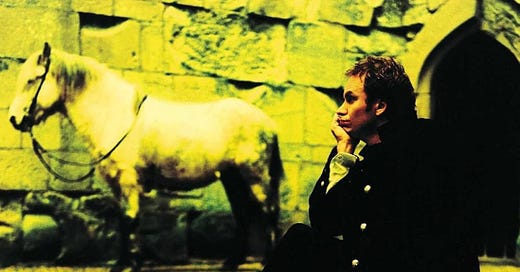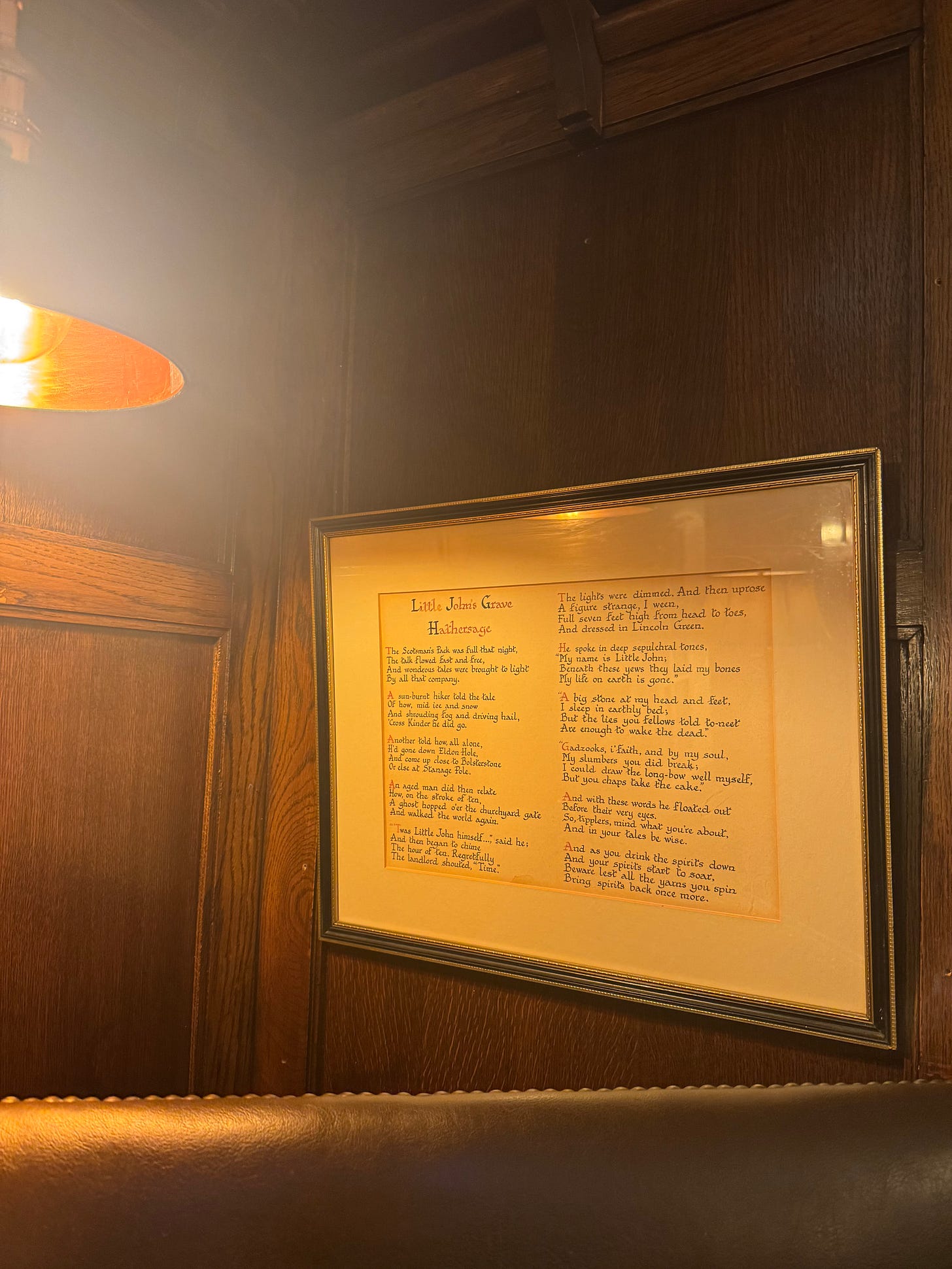Shape of My Heart - Sting (1993)
The meditative riff and folkloric storytelling of this timeless classic became the unexpected soundtrack to my recent weekend getaway to the Peak District
Follow the All City Spotify playlist here:
Every year, on the middle weekend of December, I travel north on a train from London to spend time with my maternal cousins in the Peak District. We rent a cottage with a kitchen big enough to cook properly and a living room with comfortable seating that wraps around a log burner. We go for long walks in the daylight, eat festive pub food at nightfall, drink slowly without guilt, watch epic films, catch up on each others’ lives and reflect gratefully on another year travelling around the sun.
Earlier this week I returned from my seventh annual trip. It has become a ritual that I crave, an escape from the busy city in the stern south, a marker of one era coming to a close and another opening. I always arrive home a new man.
The music selection throughout the long weekend is inevitably key. Portable speaker in hand, I usually assume the role of DJ. The vibe can veer between nostalgic cheese to low-end jazz to upbeat dance to moody hip-hop, and more, depending on the time of day.
Every year, on my train back to London afterwards, a handful of songs emerge as favourites from the past 72 hours. There is usually one that stays on loop in my head.
This time, for whatever reason, it was Sting’s Shape of My Heart.
I could not have specified its origins at the time, as I was only 11-years-old, but I first came into contact with Shape of My Heart’s catchy, meditative guitar riff in Craig David’s 2002 single Rise & Fall, which fittingly features Sting (I’m not sure he would have easily gotten away with using the sample without the collaboration).
An intergenerational duet combining the voices of two iconic British singer-songwriters, it appeared on David’s second album, Slicker Than Your Average, after he had soared to global fame across the turn of the millennium.
I remember listening to Rise & Fall on my mini-disc player a few years after it came out and feeling like there was something so uncannily familiar about it. But I could never figure out why. It was only later that I realised it had rehashed Sting’s original, whose omnipresence in pop culture and on the radio as an easy-listening backdrop to British life must have been playing in my childhood and adolescence since its release in 1993. The handful of Police (Sting’s former group) vinyls in my Dad’s collection, which now sit in boxes in my cupboard, ready to be unearthed when I finally invest in my own turntable, make perfect sense.
Later, at university, I sat down to watch Léon: The Professional - a 1994 film by Luc Besson about a hitman who takes a 12-year-old Nathalie Portman under his wing - when Sting’s guitar riff appeared as the soundtrack, a poetic accompaniment to the unravelling vulnerability of Jean Reno’s lead.
Because of the guitar riff’s hypnotic, emotive powers, which I cannot hear without deriving at least a minimal sense of peace, it is tempting to play Shape of My Heart without listening hard to the lyrics, beyond gaining an obvious familiarity with the chorus, which is ostensibly about love.
But this is the beauty of timeless music. It is patient. It is art that you can return to on your own terms. It can work its way into your life gradually, over decades, and impress its fuller meaning upon you, if and when needed.
There is no single wholly correct interpretation of Shape of My Heart, the ambiguity of which is an achievement in itself for words that have been listened to and pulled apart so many millions of times over the years. But Sting’s lyrics seem to paint a portrait of a man participating in a card game in pursuit of truth.
He leverages the four suits of a deck of cards in the chorus. There is a humility to his ethos. He hides the King up his sleeve “until the memory of it fades”. Swords, soldier, weapons, war, diamonds, money for this art: these are corrupting, manmade constructs of greed, power and competition.
“But that’s not the shape of my heart,” insists Sting.
On my weekend in the Peaks, we stayed in Hathersage, a gritstone Derbyshire village to the north of the river Derwent. The pub we frequented most, metres from our cottage, was called The Scotsman’s Pack. Hathersage is the supposed resting place of Little John, Robin Hood’s seven-foot-tall chief lieutenant. On the Saturday, at sunset, after we returned from a 14 km walk in hilly forestry, we took a seat in the pub to order mulled wine and early dinner.
I couldn’t help but stare at an old, yellowing poem about Little John’s Grave framed on the wall. It looks like it could have been written hundreds of years ago. Its four-line stanzas and symbolic storytelling, as if relayed by a cloaked nomad taking shelter at the inn to tell tales and refuel before heading back out into the elements, has ended up in the same part of my mind as Shape of My Heart.
The song appears on Sting’s fourth solo album Ten Summoner’s Tales - ‘Summoner’ being a double entendre pun of his family name (Sumner) and a character from Geoffrey Chaucer’s 14th century epic The Canterbury Tales.
Folklore, like good music, stands the test of time.
Merry Christmas to you and yours when it comes.
Follow the All City Spotify playlist here:





There is a sacred mystery to this song that you've tapped into. 'Fragile' makes me feel a similar way – another plucked allegory that is a little easier to grasp. Thanks for reviving it in my mind.
Ciaran- It’s been a minute since I revisit Sting’s work so this is a refreshing find. I appreciate it.